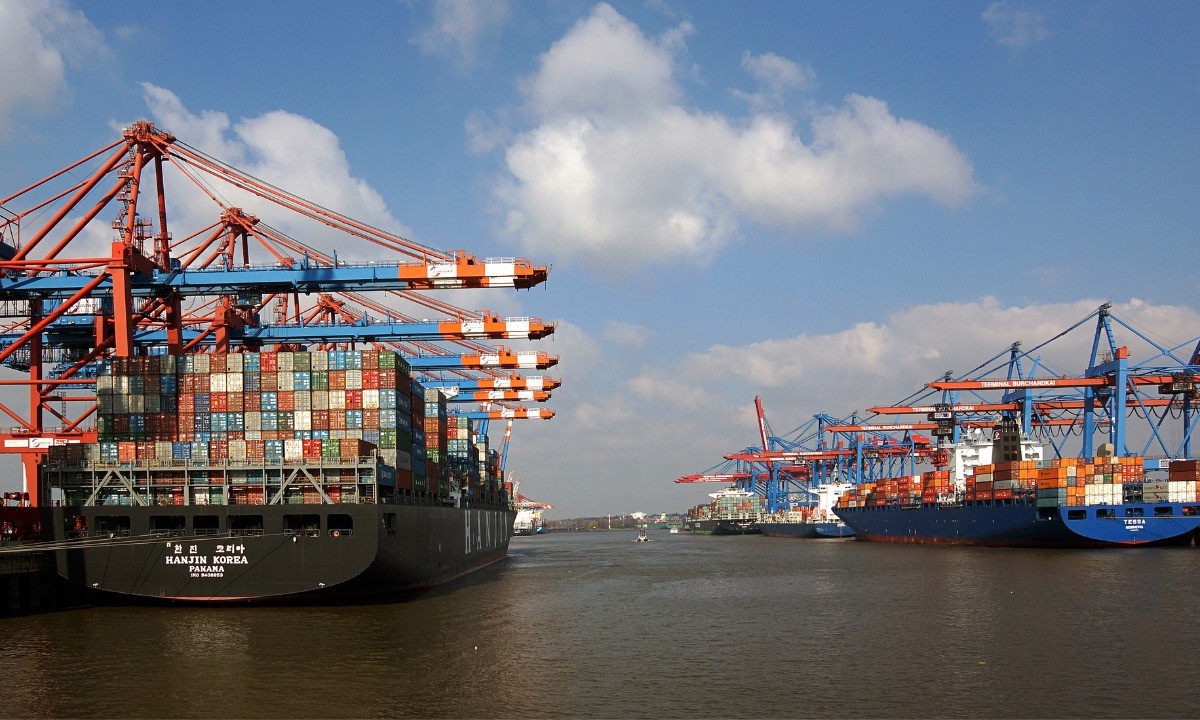Unlocking Economic Growth through Trade Financing: Why we invested in Marco
We are happy to announce our new investment in Marco, a cross-border fintech enabling micro, small and medium companies to increase exports by tapping new markets. By offering rapid access and eliminating bottlenecks, the Company is simplifying the exporting process for SMEs seeking to boost their export revenue. The investment aligns with our thesis at the intersection of two key verticals: Agriculture and Logistics. The Company directly addresses food stability, with 40% of its client base involved in food-related products, while also facilitating international logistics for players in Latin America.
Three key factors are driving innovation and creating investment opportunities in the cross-border trade sector: (i) the supply chain disruption post Covid, (ii) the effects of nearshoring in the Americas, and (iii) the increasing representation of Latin Americans in the export market. These factors are laying the groundwork for significant transformation in the trade sector.
After three years of in-depth study in the cross-border trade sector, understanding areas such as freight forwarders, freight and goods marketplaces, sector-specific ERPs and data providers, we are thrilled to announce our first investment in this expansive thematic area, partnering with Marco. In this brief article, we provide an overview of our findings and the reasoning behind our decision to partner with Marco. This decision is primarily based on three key factors:
- The vast size of the Latin America’s cross-border trade market;
- The comprehensive suite of products offered by Marco; and
- The collective experience and complementary skills of Marco’s team.
-
THE LATIN AMERICAN CROSS-BORDER TRADE MARKET IS MASSIVE, YET DOMINATED BY INDUSTRY GIANTS
The Opportunity
Today, the cross-border payments market is predominantly dominated by correspondent banks connected via SWIFT. These players often impose high costs, charging high fees, and operate at a sluggish pace. SMEs, in particular, face challenges in negotiating favorable rates or even getting considered for the application. Today’s process is lengthy and bureaucratic, with most B2B foreign exchange (FX) negotiations taking place over the phone, lacking transparency and burdened by hidden fees.
When it comes to the delivery of international goods, shipping durations can span from 30 to 90 days from port to port. This prolonged supply chain cycle poses a considerable working capital challenge. Importers often struggle to bridge the gap between the time of inventory purchase and the time of sale.
On the other hand, exporters face challenges in handling the gap between upfront purchase order payments and final balances paid upon delivery. While banks are willing to engage in such transactions, the cost associated with managing risk and conducting initial underwriting on individual shipments make it particularly challenging to serve SMBs. Banks typically provide letter of credit tailored to large traders that do not require collateral for underwriting.
Consequently, small and mid-sized traders find themselves underserved, despite comprising 30-40% of the cross-border trade volume.
Vast and Growing Market
The global trade finance market represents a $5.2 trillion opportunity, while there is a $1.7 trillion global trade financing gap, that Marco is tackling. Latin America Latin America stands out as a significant market, ranking as the fourth-largest exporter worldwide, with exports totaling U$1.8 trillion in goods and services in 2022, with a 24% CAGR in the last two years. Notably, Brazil and Mexico alone accounted for 18% of total US imports of goods in 2022.


Mexico currently ranks as the world's second-largest goods exporter, trailing only behind China. This dynamic has been evolving in recent years, with further reinforcement from nearshoring effects following strained relations between the USA and China. Such transformation was evidenced by Mexico surpassing China in September 2023 in terms of US imports, making the first instance since 2003.


What about Brazil?
Brazilian exports to the US have experienced robust growth, averaging 7% annually since 2018. Notably, sectors such as iron (+34%), coffee (+22%), wood materials (+22%) and mineral oils (+14%) have seen particularly strong growth, capitalizing on Brazil's competitive advantages in these areas. One of the relevant factors for this evolution is the increase in commodity prices globally, as evidenced by the significant growth in sectors such as crude oil, iron ore, coffee, wood, etc.
The Brazilian Government has identified numerous market opportunities aimed at expanding the share of Brazilian exports in the North American market. According to the Brazilian Trade and Investment Promotion Agency (APEX), 931 such opportunities have been mapped out, with the potential to enhance exports prospects by $780 billion across five main sectors.
The Challenges Ahead
To effectively serve SMEs, trade finance providers must possess a deep understanding of the associated risks and implement measures to mitigate them both during the underwriting process and throughout the collection phase.
-
MARCO’S PRODUCT OFFERING – STRATEGIC POSITIONING AND ASSET CLASS
In the context of the growing market for Latin American exporters, Marco emerges with a platform that integrates data from open finance, supply chain software’s, ERPs and trade-specific documents, along with proprietary data and credit analysis. This data-driven approach enables more precise underwriting and greater agility in providing working capital to small and medium-sized enterprises. Marco’s primary product is invoice factoring.
As a result, the company’s tech-enabled platform seamlessly connects exporters with creditors, offering improved payment terms and streamlined processes. Access to financing is a critical pain point for SMBs engaged in international trade, and addressing this need represents just the beginning for the Company.
A study from McKinsey showed that: “these issues are particularly challenging for the micro, small, and medium-size enterprises (MSMEs) that play an increasingly important role in global trade. Financing rejection rates for such businesses run at 40%; a 2017 World Bank study indicated that 65 million MSMEs were credit constrained”.
From a business perspective, factoring presents a low-risk investment opportunity with attractive returns, particularly for cross-border transactions. Factoring companies purchase short-term accounts receivable at a discount and collect payment from the debtor, typically a stable company with reliable cash flow. Marco is currently working with tier 1 retailers such as Walmart, Cost Co, HEB, among other. This makes factoring an appealing asset class that generates steady revenue for investors.
This is proven by the historically low sector-specific default rates compared to credit cards, consumer loans and business loans. In addition, Marco has maintained a sound track record with 0% losses since its inception, demonstrating robust risk management mechanisms at scale.


To attract more clients and increase share of wallet, Marco has developed an extensive product and service roadmap. Currently, in addition to trade finance credit, the company provides a variety of services and products for exporters, including LLC Formation, data to SMEs expanding their U.S. buyer base, FX services and Cargo Insurance.
-
MARCO’S TEAM IS COMPLEMENTARY AND HIGHLY EXPERIENCED
The remarkable achievements and ambitious vision of Marco are a testament to the outstanding leadership of its founding team. The Company is led by Jacob Shoihet (CEO) and Peter Spradling (COO). Jacob brings a breadth of startup experience to Marco, having held significant roles in sales and business development at renowned companies such as Yelp, Groupon, and Taboola. Conversely, Peter's background includes firsthand experience in exporting goods through his Uruguayan family's business, where he encountered challenges in finding suitable financial partners. Prior to this, Peter honed his analytical skills at JLL, a leading real estate investment management firm in the USA.
Moreover, the team has successfully attracted top-tier talent, even in the early stages of the company's development. Julia Castiglia leads the Project Management team, leveraging her diverse educational background in Computer Science, Economics, and Data Science from MIT. Damian Sandler, the Head of Product, brings valuable experience from his previous role at dLocal, a Uruguayan unicorn in payment services. Damian's educational background includes a Bachelor's degree in Electronics Engineering from University ORT Uruguay and an MBA from Tel Aviv University in collaboration with Northwestern Kellogg School of Management.
Recognizing the importance of having a seasoned team to navigate the complexities of emerging economies and address the challenges of financial underservice and mispriced risk, Marco has assembled a senior credit team led by Fred Leder. With over 35 years of experience in factoring, asset-based lending, and supply chain finance, Fred has held leadership positions in large multinational corporations, ensuring that Marco's credit operations are robust and well-equipped to thrive in challenging environments.
Looking Forward
The implicit complexity and bureaucratic nature of the trade supply chain in Latin America present a significant challenge for exporters in managing their working capital. Despite expressed interest from banks in facilitating such transactions, the associated costs of risk management and initial underwriting for individual shipments make serving SMEs particularly difficult.
Therefore, Marco has the potential to revolutionize the industry by leveraging a combination of data from open finance, supply chain software, and trade-specific documents. This data-driven approach enables more accurate underwriting of working capital for SMEs. Additionally, Marco's product offering generates substantial gross profit margins by capitalizing on the arbitrage between low-cost funding and high-interest short-term loans with low risk. With an exceptional founding team, increasing product demand, and a clear roadmap for bridging the financial trade gap for Latin American SMEs, Marco stands out as a notable player in the evolving landscape of Latin American trade and technology.










